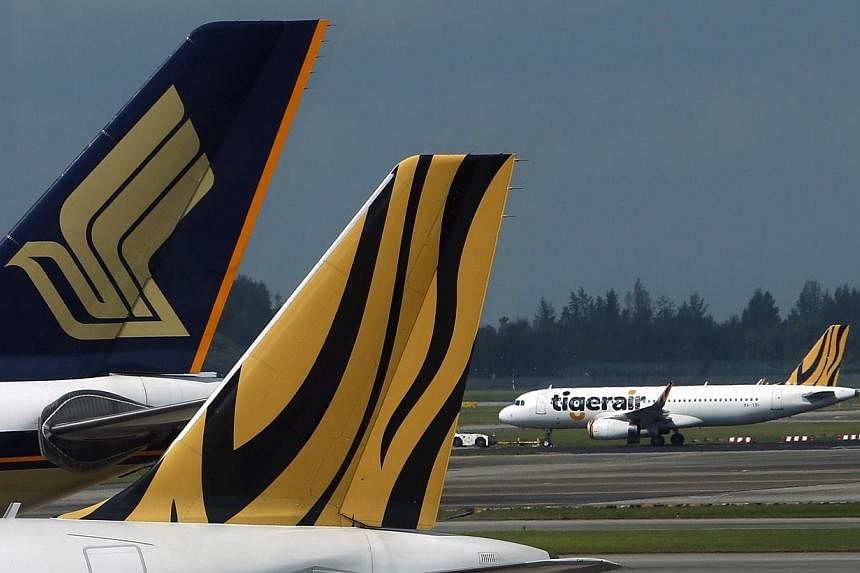Shares of Singapore Airlines and Tiger Airways extended gains for a second straight session as oil prices, a major component of their operating costs, continued to sink.
SIA shares jumped 1.8 per cent or 21 cents to $11.89, with 3.1 million shares changing hands, while Tigerair shares gained nearly 2 per cent or 0.5 cent to 26 cents as of 1.07pm on Wednesday. SIA shares have been rising consistently since Jan 2, gaining 2.9 per cent or 24 cents.
UOB Kay Hian upgraded SIA to a buy on Tuesday (Jan 6), saying its "ability to hedge fuel will enable it to lock in costs and improve margins."
"SIA's flexibility to hedge fuel will give it an edge over other airlines which do not have the flexibility (Chinese airlines or other low cost carriers). Typically, the carrier can hedge up to 60 per cent of its fuel requirements for a financial year," said Mr K. Ajith, a Singapore-based analyst with the brokerage.
Fuel hedging is a tool used by airlines, to reduce their exposure to volatile and potentially rising fuel costs. A fuel hedge contract allows an airline to lock in a guaranteed amount of fuel for future consumption at a fixed price. Big and profitable airlines have the advantage here as hedging requires paying hefy transaction costs upfront.
Oil prices plunged by half in 2014, the most since the 2008 financial crisis, after the Organization of Petroleum Exporting Countries (OPEC) rejected calls to cut output as it competes with United States shale producers. That should help boost airlines' earnings in the short term, say analysts.
Over the last two days, US crude fell another 10 per cent to below US$48 a barrel amid speculation that U.S. inventories will expand, deepening a global supply glut that's driven prices to a five-year low.

